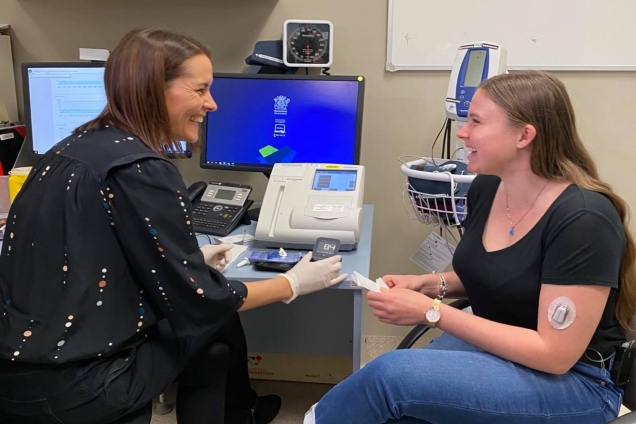
Gold Coast Health’s Diabetes Education Program is exceeding national benchmarks for long-term blood glucose control, giving patients great odds of successfully managing the chronic disease.
The optimal glycated haemoglobin (HbA1c) target in people with diabetes is generally ≤ 7 % and is the gold standard for measuring long-term diabetes control. Participants in the Diabetes Education Program consistently rate significantly better than that target when exiting the program.
Chronic Diseases Program Nurse Unit Manager Sharon Leslie said comprehensive multidisciplinary care, tailored patient education, and monitoring were behind the strong results.
“Our team of Diabetes nurse educators act as case managers for the patients’ care and provide regular face-to-face and phone reviews until the patient’s target is achieved,” Sharon said.
“We educate patients on everything from how to control the disease and avoid hospitalisation, to insulin administration and how to detect signs of hypoglycaemia / hyperglycaemia.
“Additionally, with thanks to technology, we are able to continuously monitor our clients’ glucose results remotely, which has been really useful, particularly during the COVID-19 pandemic.”
20-year-old Grace Mitchell has been connected to an insulin pump since she was diagnosed at the age of 12 and says multidisciplinary care has been key to keeping her Type 1 Diabetes in check, and her health on track.
“It takes a lot of work from different people to manage the various aspects of my diabetes, so having the access to all that support here is wonderful,” Grace said.
More than 700 people participate in diabetes education at Robina Health Precinct and Helensvale Community Health Centre each year. Diabetes nurse educators at both centres are assisted by a podiatrist, pharmacist, dietician, social worker and exercise physiologist to provide education on controlling the disease.
In addition to Diabetes Education, Gold Coast Health runs programs for cardiac rehabilitation, heart failure, respiratory, peripheral vascular disease, falls, and cognitive disorders under its Chronic Diseases Program.
Around 1.7 million Australians have diabetes. With 280 people developing diabetes every day, it’s the nation’s fastest growing chronic disease.



